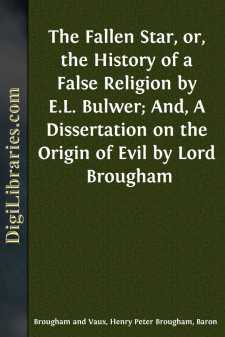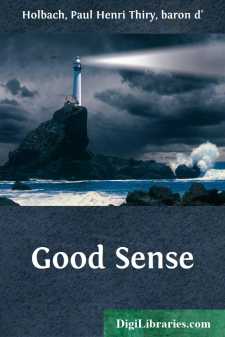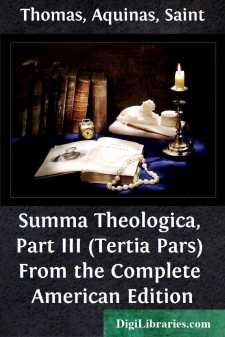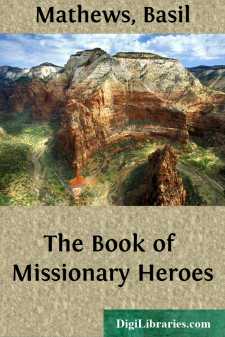Religion
- Agnosticism 2
- Antiquities & Archaeology 21
- Atheism 12
- Biblical Criticism & Interpretation 15
- Biblical Meditations 3
- Biblical Reference 1
- Biblical Studies 11
- Buddhism 8
- Christian Church 52
- Christian Education 5
- Christian Life 26
- Christianity 60
- Cults 2
- Devotional 6
- Eastern 2
- Education 4
- Eschatology 1
- Ethics 3
- General 60
- Gnosticism 1
- Hinduism 15
- History 28
- Holidays 10
- Inspirational 1
- Islam 8
- Judaism 3
- Leadership 1
- Meditations 3
- Monasticism 1
- Mysticism 11
- Philosophy 4
- Prayer 26
- Prayerbooks 5
- Religion & Science 12
- Sermons 54
- Spirituality 53
- Theism 2
- Theology 17
- Theosophy 15
Religion Books
Sort by:
I. ORIGINS. Liturgical worship, understood in the largest sense the phrase can bear, means divine service rendered in accordance with an established form. Of late years there has been an attempt made among purists to confine the word "liturgy" to the office entitled in the Prayer Book, The Order for the Administration of the Lord's Supper or Holy Communion. This restricted and specialized...
more...
RELIGION, says Noah Webster in his American Dictionary of the English Language, is derived from "Religo, to bind anew;" and, in this History of a False Religion, our author has shown how easily its votaries were insnared, deceived, and mentally bound in a labyrinth of falsehood and error, by a designing knave, who established a new religion and a new order of priesthood by imposing on their...
more...
When we examine the opinions of men, we find that nothing is more uncommon, than common sense; or, in other words, they lack judgment to discover plain truths, or to reject absurdities, and palpable contradictions. We have an example of this in Theology, a system revered in all countries by a great number of men; an object regarded by them as most important, and indispensable to happiness. An...
more...
by:
Aquinas Thomas
In a few places, where obvious errors appeared in the Benziger Brothers edition, I have corrected them by reference to a Latin text of the Summa. These corrections are indicated by English text in brackets. For example, in Part I, Question 45, Article 2, the first sentence in the Benziger Brothers edition begins: "Not only is it impossible that anything should be created by God…." By...
more...
by:
Basil Mathews
CHAPTER I THE HERO OF THE LONG TRAIL St. Paul (Dates, b. A.D. 6, d. A.D. 67) The Three Comrades. The purple shadows of three men moved ahead of them on the tawny stones of the Roman road on the high plateau of Asia Minor one bright, fresh morning. They had just come out under the arched gateway through the thick walls of the Roman city of Antioch-in-Pisidia. The great aqueduct of stone that brought the...
more...
CHAPTER I. TWO SCENES.How delightful to step into the home where God is counselor of both parent and child! How blessed the companionship in such a home! There God counsels in sweet, tender tones. He teaches his will and gives the needed wisdom. God is man's truest and best teacher. James says, "If any of you lack wisdom, let him ask of God, that giveth to all men liberally ... and it shall be...
more...
1. The words, a nagual, nagualism, a nagualist, have been current in English prose for more than seventy years; they are found during that time in a variety of books published in England and the United States, yet are not to be discovered in any dictionary of the English language; nor has Nagualism a place in any of the numerous encyclopædias or “Conversation Lexicons,” in English, French, German...
more...
INTRODUCTION. It may seem an impertinence on the present writer's part to indite a preface to the work of a brother Bishop; and it would be a still greater one to pretend to introduce the Author of this little book to the reading public, to whom he is so well and so favourably known by a stately array of preceding volumes. Nevertheless Bishop Vaughan has been so insistent on my contributing at...
more...
HER TRUTHFULNESS. "Behold, Thou requirest truth in the inward parts."—Psalm li. 6. We stand to-day like men who have just watched a great sunset. On some beautiful summer evening we must all of us have watched a sunset, and we know how, first of all, we see the great orb slowly decline towards the horizon; then comes the sense of coming loss; then it sets amid a blaze of glory, and then it is...
more...
by:
DadaBhagwan
Aqueles que procuram levar uma vida espiritual podem ficar curiosos quanto ao que é ahimsa (não violência), e inspirados a praticá-la. Mas entender como viver sem violência não é tão simples quanto parece, e praticar nenhuma violência na vida diária pode rapidamente se tornar desconcertante. Para alguém que está começando a cultivar a não-violência, as interações diárias podem até...
more...











